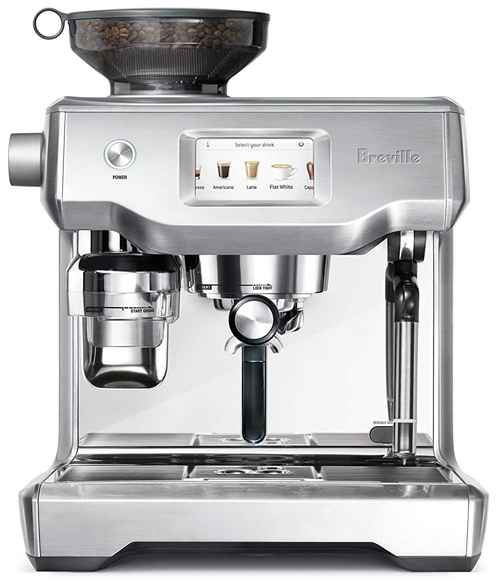Dutch Latte Recipe [+Tips]
Note: This page contains affiliate links.
As an Amazon Associate, I earn from qualifying purchases when you click on the link, but you are not charged extra.
Oh, the Dutch Latte. What a charming little gem in the coffee universe! If you’ve ever wandered through European café menus or fallen down a late-night rabbit hole of coffee TikToks, you might have stumbled upon this smooth, chilled, and irresistibly milky beverage.
- Old World Christmas Beans: Tastes like the holidays in every cup — discover the cozy magic of Old World Christmas Beans before the season slips away.
- Kirkland Sumatra French Roast : Dark, bold, and wildly smooth—why Kirkland’s Sumatra French Roast is the best-kept secret of serious coffee drinkers.
- Hot Fudge Whole Bean Coffee : What happens when dessert meets coffee? Meet the decadent whole bean that tastes like hot fudge—but better.
- Aroma Ridge Guatemala Antigua Medium Roast : From the highlands of Guatemala to your morning mug—this rich, balanced roast is waking up coffee lovers everywhere.
- Juan Valdez Cumbre Colombian Coffee : Crafted by Colombia’s most iconic coffee legend—why Cumbre is a must-try for fans of bold, authentic flavor.
But let’s get something straight right off the bat: a Dutch Latte isn’t brewed with Dutch coffee beans (although, hey, you could if you wanted to!). Instead, it’s a delightful blend of cold brew or espresso paired with milk, often served chilled – though it can be enjoyed warm too. Think of it as the classier, silkier cousin of your standard iced latte.
It’s the perfect pick-me-up for hot days, brunches, coffee dates, or when you’re just in the mood to sip on something elegant and energizing without the heaviness of a hot drink. Best part? You don’t have to be a barista to make it at home – I’ve got you covered!
- 1 Ingredients For Dutch Latte Recipe
- 2 How To Make A Dutch Latte?
- 3 Expert Tips
- 4 Recipe Variations
- 5 Final Words
- 6 FAQs
- 6.1 What Is A Dutch Latte?
- 6.2 What Ingredients Do I Need To Make A Dutch Latte?
- 6.3 How Do I Make A Dutch Latte At Home?
- 6.4 Can I Use Milk Alternatives For A Dutch Latte?
- 6.5 What Makes A Dutch Latte Different From A Regular Latte?
- 6.6 Is A Dutch Latte Served Hot Or Cold?
- 6.7 How Much Espresso Is Used In A Dutch Latte?
- 6.8 Can I Add Flavors To Customize My Dutch Latte?
- 6.9 What Type Of Coffee Beans Are Best For A Dutch Latte?
- 6.10 Is The Dutch Latte Popular Outside The Netherlands?
Ingredients For Dutch Latte Recipe
You don’t need a cabinet full of complicated syrups or expensive gadgets. This recipe is all about simplicity, balance, and quality ingredients. Here’s what you’ll need:
☕ Base Ingredients
-
Cold Brew Coffee (½ cup) or 1-2 shots of espresso
▸ For a traditional Dutch Latte, cold brew is the star. But if you’re craving a little more boldness, go for espresso.
-
Whole Milk (¾ To 1 Cup)
▸ You can use any milk you like, but whole milk gives that ultra-creamy, café-style richness.
-
Ice cubes (if serving cold)
▸ Crystal-clear ice makes all the difference in presentation and taste.
Optional Add-Ins
-
Vanilla Extract (¼ Tsp)
▸ Adds a lovely, subtle sweetness and warmth.
-
Sweetener of choice – sugar, honey, agave, or a splash of flavored syrup
▸ Adjust based on your sweet tooth. Dutch Lattes are typically mellow and not overly sweet.
-
Cinnamon Or Cocoa Powder (for Garnish)
▸ Adds a little flair and depth.
-
Non-dairy milk alternatives (like oat milk, almond milk, or coconut milk)
▸ Go ahead and make it plant-based without losing the creamy vibe!
How To Make A Dutch Latte?
Now for the fun part! Making a Dutch Latte at home is honestly so satisfying – it’s like café therapy in your own kitchen. Here’s the full, step-by-step breakdown:
Step-by-Step Instructions
-
Start With Cold Brew Or Espresso
▸ If using cold brew: Make it ahead of time (steep coarsely ground coffee in cold water for 12-18 hours).
▸ If using espresso: Brew your shot fresh and let it cool slightly.
-
Add Sweetener (Optional)
▸ Mix in sugar, syrup, or honey while the coffee is still warm (if you brewed espresso), so it dissolves easily.
-
Fill A Tall Glass With Ice
▸ Use a glass that lets the layers shine! Pop in 5-6 ice cubes.
-
Pour In The Coffee
▸ About half the glass should be filled with your cold brew or espresso.
-
Top With Cold Milk
▸ Gently pour in your milk to create that beautiful layered effect – it’s basically coffee art for the soul.
-
Add A Drop Of Vanilla Or Sprinkle Of Cinnamon (Optional But Magical)
▸ For extra aroma and flavor.
-
Stir, Sip & Swoon
▸ Stir gently if you like a blended taste, or sip as-is to experience the flavor evolution from coffee to milk.
Expert Tips
Want to level up your Dutch Latte game? Here are some insider tricks from café connoisseurs and coffee nerds alike:
-
Use Good Quality Coffee Beans.
The flavor of your latte hinges on your brew – choose beans with chocolatey, nutty, or caramel notes for best results.
-
Try Flash-chilling Your Espresso.
Brew hot espresso, then shake it with ice in a cocktail shaker before pouring it into your glass – keeps flavor bold, texture smooth.
-
Froth Your Milk – Even When Cold!
Yep, cold foam is a thing. Use a handheld frother or mason jar to froth cold milk for a barista-level touch.
-
Use Clear, Large Ice Cubes.
They melt slower and keep your drink from getting watered down too quickly.
-
Make It Ahead Of Time.
Prepare cold brew in batches and store it in the fridge for up to a week – that way you’re only a milk-pour away from bliss.
Recipe Variations
The Dutch Latte is a chameleon – it plays so well with flavors and add-ins. Here’s how you can tweak it to match your mood or the season:
For Spring/Summer
-
Lavender Dutch Latte
▸ Add a splash of lavender syrup and garnish with dried lavender buds for a floral touch.
-
Coconut Dutch Latte
▸ Use coconut milk and a hint of vanilla. Tropics in a glass.
For Fall/Winter
-
Cinnamon Maple Dutch Latte
▸ A drizzle of maple syrup and a dusting of cinnamon – it’s cozy in a cup.
-
Pumpkin Spice Dutch Latte
▸ Blend in a spoonful of pumpkin purée, pumpkin spice mix, and a touch of brown sugar.
Iced, Hot, Or Blended?
- Iced – Classic, crisp, and refreshing.
- Hot – Just warm your milk and espresso/cold brew, combine, and skip the ice.
- Blended – Throw it all in a blender with some ice for a frappe-style treat.
Final Words
Let’s be real – there’s something about making a Dutch Latte at home that just hits different. It’s not just about the caffeine kick (although yes, it definitely helps). It’s about creating a ritual: grinding the beans, pouring the milk just so, sipping slowly as the layers swirl together. You’re not just making coffee; you’re creating a moment.
Whether you’re a seasoned coffee lover or new to the scene, this recipe is approachable, customizable, and seriously rewarding. Plus, once you master the basics, you can experiment endlessly.
FAQs
What Is A Dutch Latte?
A Dutch latte is a coffee beverage made with espresso and steamed milk, often featuring rich, creamy textures and sometimes sweetened with syrups or spices. It can also refer to a style of latte inspired by Dutch coffee traditions, emphasizing strong coffee and smooth milk.
What Ingredients Do I Need To Make A Dutch Latte?
To make a Dutch latte, you typically need fresh espresso or strong brewed coffee, steamed milk (whole milk or alternatives), and optional sweeteners such as vanilla syrup, cinnamon, or brown sugar.
How Do I Make A Dutch Latte At Home?
Start by brewing a shot of espresso or strong coffee. Steam and froth your milk until creamy and hot. Pour the espresso into a cup, then slowly add the steamed milk, creating a smooth blend. Optionally, add syrup or spices to taste.
Can I Use Milk Alternatives For A Dutch Latte?
Yes, many milk alternatives like oat milk, almond milk, soy milk, or coconut milk work well in a Dutch latte, though the flavor and texture might vary slightly compared to whole milk.
What Makes A Dutch Latte Different From A Regular Latte?
A Dutch latte often emphasizes stronger coffee and sometimes includes unique flavor additions such as vanilla, caramel, or spices, reflecting Dutch coffee culture. It may also have a creamier texture due to specific milk steaming techniques.
Is A Dutch Latte Served Hot Or Cold?
A Dutch latte can be served both hot and iced. The hot version uses steamed milk, while the iced version is made with cold milk and ice, often with the same espresso base.
How Much Espresso Is Used In A Dutch Latte?
Typically, one or two shots of espresso are used, depending on the desired strength. The espresso is the base, with milk added in a ratio of about 1:3 or 1:4 espresso to milk.
Can I Add Flavors To Customize My Dutch Latte?
Absolutely! Common additions include vanilla syrup, caramel, cinnamon, nutmeg, or even a pinch of sea salt. These flavors complement the rich coffee and creamy milk.
What Type Of Coffee Beans Are Best For A Dutch Latte?
Medium to dark roast beans are preferred for Dutch lattes because they provide a bold and robust espresso flavor that balances well with milk.
Is The Dutch Latte Popular Outside The Netherlands?
While inspired by Dutch coffee culture, the Dutch latte concept has gained popularity internationally, especially in specialty coffee shops looking to offer unique latte variations with rich flavor profiles.

